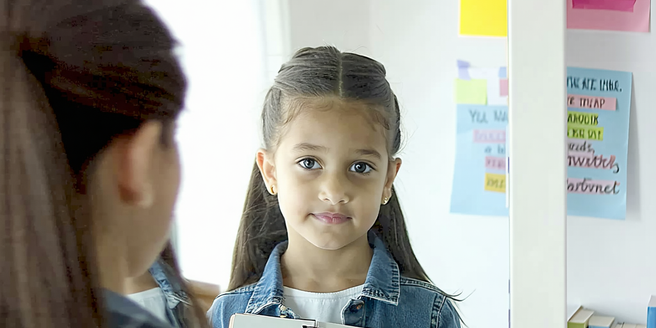
Understanding the Importance of Self-Evaluation in Children
Self-evaluation is a pivotal skill that empowers children to reflect on their actions, thoughts, and behaviors, allowing them to develop self-awareness and personal growth. This process helps children understand their strengths and weaknesses, promoting a sense of responsibility and ownership over their learning. By practicing self-evaluation, children can set realistic goals and make informed decisions. It fosters a growth mindset, encouraging them to view challenges as opportunities for improvement rather than obstacles. Establishing a habit of self-reflection can enhance a child’s ability to communicate effectively, resolve conflicts, and work collaboratively with peers. As children are naturally curious, self-evaluation encourages them to ask questions and seek answers, nurturing their intrinsic motivation to learn. Consequently, understanding and implementing self-evaluation techniques can greatly contribute to a child’s overall development and future success.
Interactive Activities to Foster Reflection and Growth
Interactive activities play a crucial role in fostering reflection and growth in children. Activities such as storytelling, role-playing, and group discussions provide platforms for children to express their thoughts and emotions in a safe environment. Art projects, journaling, and mind-mapping enable children to explore their inner selves and articulate their experiences creatively. Incorporating games that encourage decision-making and problem-solving can build critical thinking skills and boost confidence. These activities can be designed to include immediate feedback, allowing children to recognize their progress and identify areas for improvement. Hands-on activities not only keep children engaged but also facilitate deeper understanding and retention of valuable self-evaluation skills. By providing diverse and dynamic learning experiences, interactive activities can cultivate a child’s ability to self-assess, adapt, and grow in various aspects of life, paving the way for lifelong learning.
Incorporating Self-assessment in Daily Routines
Integrating self-assessment into a child’s daily routine can solidify their ability to evaluate their own learning and behavior consistently. Encouraging children to set specific, achievable targets each day allows them to monitor their progress and make necessary adjustments. Daily reflections, such as journaling or verbal sharing of accomplishments and challenges, foster self-awareness and accountability. Implementing visual aids like charts or bullet journals can help children track their progress over time, providing opportunities for self-reflection and celebration of achievements. Providing regular, constructive feedback during these routines reinforces the value of self-assessment. Moreover, incorporating moments of quiet reflection, such as mindful breathing or meditation, can further enhance a child’s emotional regulation and focus. By embedding self-assessment into daily activities, children can develop a habitual practice of reflection, laying the foundation for continued personal growth and development.
Tools and Resources for Effective Self-Evaluation
Utilizing various tools and resources can significantly enhance a child’s ability to self-evaluate effectively. Digital tools, such as apps and online platforms, offer interactive and personalized experiences that cater to individual learning styles. Educational games focused on critical thinking and problem-solving can provide instant feedback, motivating children to assess their performance and improve. Printable worksheets and templates can serve as tangible guides for children to organize their thoughts and track progress. Resources like videos, podcasts, or books tailored to self-improvement and growth mindset concepts can inspire children to engage in reflective practices. Additionally, creating a supportive environment at home or school that encourages questions and dialogue about personal experiences can further reinforce self-evaluation skills. By leveraging diverse tools and resources, children can enhance their self-assessment capabilities, paving the way for deeper understanding and lifelong learning.
Role of Parents and Educators in Guiding Self-Assessment
Parents and educators play a vital role in scaffolding children’s self-assessment experiences. They can provide a framework and model self-evaluation by sharing their reflective practices. Creating a supportive environment where children feel comfortable expressing their thoughts and feelings without judgment is crucial. Encouraging open dialogue and providing constructive feedback helps children refine their self-assessment skills. Parents and educators can use goal-setting techniques with children, helping them articulate their objectives and strategies for achieving them. By recognizing and celebrating small successes, adults can reinforce children’s confidence and motivation. Offering consistent feedback and adjusting expectations based on individual progress aids in guiding children’s self-evaluation journey. Collaborating in these efforts ensures a holistic approach to nurturing self-assessment, ultimately empowering children to become independent, reflective learners capable of guiding their personal and academic growth.
Overcoming Challenges in Teaching Self-Evaluation Skills
Teaching self-evaluation skills to children can present several challenges, but with strategic approaches, they can be effectively addressed. One challenge is children’s initial resistance to evaluating themselves due to fear of failure or criticism. Creating a non-judgmental and safe environment by emphasizing effort over perfection can help alleviate this fear. Another challenge is maintaining consistent practice. Embedding self-assessment into daily or weekly routines ensures regular engagement. Additionally, children may struggle with the vocabulary needed to articulate their reflections. Educators and parents can introduce age-appropriate language and examples to facilitate communication. It’s important to recognize that each child progresses at their own pace, requiring patience and tailored support. Utilizing positive reinforcement and celebrating incremental improvements encourages perseverance. Through a supportive network and adaptable strategies, children can develop robust self-evaluation skills, despite the inherent challenges in teaching these essential techniques.
